Dear Friend and Reader:
Yesterday’s Libra New Moon quietly marked a threshold in world history, if you use astrology as a way of keeping track. We know that the 9th anniversary of the Sept. 11 incident was last month. Our culture is obsessed with anniversaries, but nature works on a little different schedule. Astrology points to its own moments of passage, and we happen to be at one right now. During the New Moon of Thursday, Oct. 7, the Sun and Moon were conjunct within two arc minutes — that is, 1/30th of a degree — to the ascendant of the chart for Sept. 11, 2001.
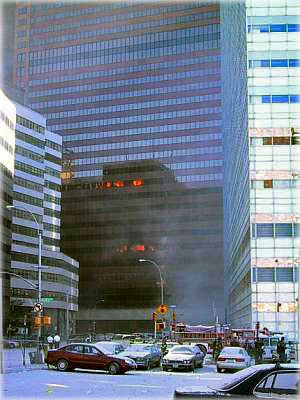
In the nine years since that incident, yesterday’s was the closest New Moon to the chart’s ascendant, and the only one occupying that degree, and it was close. My impression is that we have a rare moment of transparency around an event that shaped our lives, changed the world and, more significantly, reaffirmed something about human nature.
For those unfamiliar with the concept of the ascendant, it is also called the rising sign. In every chart there is a sign rising — that is, a section of sky, represented by a zodiac sign, rising above the Earth’s horizon in the east. In this case, Libra is the sign rising. There is also a degree rising, which is like the precise address of the chart and what it represents. Every chart with an exact time has a rising degree, including your natal chart. It’s a good thing to know. On Sept 11, precisely when Flight 11 was flown into the North Tower, that degree was 14+ Libra — remarkable because Mercury was precisely rising at that moment. Mercury in the exact degree rising gave the chart emphasis, and an ominous quality, part of which was ‘this is an event with a message’. (Let’s refer to this as the North Tower chart.)
Libra is an astrological way of saying ‘good show’. The events of Sept. 11 were compelling, even convincing, and they riled up our desire for justice, a Libra quality. But Mercury is the trickster. Behind the elegant image of Libra were a series of layers that remind us that things aren’t always what they seem, and that appearances can deceive.
I consider the North Tower chart to be a world horoscope. The event was used to reshape geopolitics. Several wars were started as a result of the attacks, which have yet to end, and the concept of the ‘post 9-11 world’ was born. So in a sense we have one of the birth charts of the 21st century: what some had thought would be the New American Century. The conservative think tank by that name argued for the new rise of a dominant American military, in a plan that called for waging a multi-front war early in the century. But in September 2000, one year before Sept. 11, it said that “the process of transformation, even if it brings revolutionary change, is likely to be a long one, absent some catastrophic and catalyzing event — like a new Pearl Harbor.”
Mercury is a reminder to depend on documentation as a way of keeping track of the facts. Who exactly was in the New American Century group of thinkers? Those who signed onto the New American Century manifesto included Dick Cheney, Scooter Libby, Donald Rumsfeld, Paul Wolfowitz, Jeb Bush and Dan Quayle — a Who’s Who of neoconservative politics.
The North Tower Chart
I’ve written a number of articles about the North Tower chart, most of them focusing on Mercury rising. Using classical methods of interpretation, Mercury in Libra was the planet associated with the secret enemy who perpetrated the attacks (the planet that rules the 12th house). It’s a perfect description of someone stealthy, clever, able to focus on an image and use images, and who understood how to use the media. Sept. 11 was one of the most spectacular Mercury-type events ever, broadcast on live television, orchestrated by someone with a stunning gift for creating spin.

The planet representing the official government, the Moon (ruler of the 10th house), was void-of-course at the end of Gemini, indicating the government was asleep at the wheel. The other planet for the government — by default, Saturn, representing the ruling structure of the country, and also what you might call the homeland (as the ruler of the 4th house) or shadow government — was in Gemini. That’s also a representation of the twin (Gemini) structures (Saturn) involved and an image of the two faces of the government.
Now here is where the chart starts to reveal its secrets. Mercury is the planet of Gemini, and Saturn is the planet exalted in Libra: they are in reception: that is, they occupy one another’s signs. And they are in a perfect (to the degree) trine aspect, indicating cooperation.
That’s another way of saying that they can switch places. The secret enemy and the homeland government look like they’re functioning as one entity. From the first moment, we had an early warning that something was up, serving as an astrological notation of the many issues that would be raised by researchers and analysts in the decade to follow.
In particular, the relationship between Mercury and Saturn hinted at the government’s foreknowledge or involvement in whatever happened. The idea that ‘Bush knew’ was circulating widely, even in the news, by the spring of 2002. Two years later, the CIA, under public pressure, declassified something called the Presidential Daily Brief of Aug. 6, 2001. Just one month before the attacks, the administration was warned by the CIA that “Bin Laden [was] determined to strike in the US,” outlining a number of current terrorist threats. Notably, this was the first time ever that a PDB was released to the public.

Even the official 9/11 Commission report said that the “system was blinking red” that summer.
Many writers and researchers have published on these and related issues, ranging from engineers asking how it was possible that the two towers collapsed at all, much less within 29 minutes of one another, to whether there was actually an airplane crash at the Pentagon. And with the thousands of planes intercepted by the Air Force for as little as veering off the course of the pilot’s flight plan, how was it even vaguely possible that these four hijacked flights — an unprecedented event — were not intercepted? Fifty-nine minutes elapsed between the crash at the North Tower and whatever happened at the Pentagon. One would think that an hour was enough time for the Air Force to stop an attack on the military headquarters of the free world.
The problem with these questions does not involve their validity. I’ve looked into them all, and they all have a value worth considering, raising significant questions lacking easy answers. The real problem is social: it involves what others will think of you, or the fear of what others will think, when you start asking. People tend to either get scared or accuse you of being a conspiracy nut. Some become openly hostile if you propose that anything but the official version of events is possible. A few will affirm that actual questions exist. Many polls indicate that the public is suspicious. More than half in one 2007 Zogby poll wanted Bush and Cheney to be investigated for their involvement in 9/11 and in the same poll more than 30% sought their immediate impeachment.
Even if the Mercury-Saturn relationship in the North Tower chart describes only the perception of the event, that perception has come with enormous pain and then a good dose of skepticism on the part of the public, and a lot of activity on the part of policy makers.
In retrospect, what did that look like? In The Shock Doctrine, published in 2007, author Naomi Klein describes “the intersection between super-profits and megadisasters” in which “the preferred method of advancing corporate goals [is] using moments of collective trauma to engage in radical social and economic engineering.” Essentially, the process breaks down to two parts: 1. Create or exploit a shock; and 2. Use the confused and chaotic aftermath to push through/assert a corporate and/or political coup with no threat of backlash from a traumatized public.
Klein proposed that, “This feat required two stages. First, the White House used the omnipresent sense of peril in the aftermath of 9/11 to dramatically increase the policing, surveillance, detention and war-waging powers of the executive branch — a power grab that the military historian Andrew Bacevich has termed ‘a rolling coup’. Then those newly enhanced and richly funded functions of security, invasion, occupation and reconstruction were immediately outsourced, handed over to the private sector to perform at a profit. Although the stated goal was fighting terrorism, the effect was the creation of the disaster capitalism complex — a full-fledged new economy in homeland security, privatized war and disaster reconstruction tasked with nothing less than building and running a privatized security state, both at home and abroad.”
The Chart for World Trade Center 7
There’s a second Sept. 11 chart that I haven’t written much about yet, timed for the spontaneous collapse of World Trade Center 7 on the afternoon of Sept. 11. Most people still have not heard that a third tower of the World Trade Center collapsed that day — a 47-story building with an impressive list of tenants. This building was not hit by any airplanes; it ‘simply collapsed’ at 5:21 pm. Notably, the 9/11 Commission did not look into how or why WTC 7 collapsed, so it came to no conclusions.

First let’s take a look at the chart, which is for the moment the structure fell in its footprint in about six seconds. Having sustained no impact by an airplane and with several relatively small fires, we are told that a concrete and steel skyscraper fell straight down, on its own, at freefall speed.
Here’s the whole chart in a separate window; to the right is a picture of the ascendant, the most significant piece. In this chart, like the North Tower chart, there is a planet rising — but this time it’s Neptune.
Neptune rising presents a mystery. It’s also a beautiful image of how WTC 7 was a kind of non-event; it was invisible. Neptune is like a veil of fog, and that veil can indicate deception, denial or delusion (words that begin with the letter D tend to attach themselves to Neptune, including Drink, Drugs and Drama). In a public chart like this, one that potentially involves a crime, Neptune rising suggests we may never know the truth, or that the truth will be obscured or seem confusing. The sign involved is Aquarius; in fact the public (one of those Aquarius things) was so confused that most people have no idea that WTC 7 even existed, much less that it mysteriously fell down at 5:21 pm.
There are a couple of other interesting features to the chart. In the 11th house (a public place) there is a lot of activity. In particular, we have Mars in Capricorn on the South Node. In the shorthand notation of astrology we have an old story (South Node) about militarism (Mars) and the corporate/government system (Capricorn) — and we have this in the 11th, right where anyone can see it. In other words, what this aspect describes is happening in plain sight.
In the same house, Ceres is conjunct Nessus in Capricorn. This will be fed to people like poison food, with them convinced it’s some form of nourishment.
Opposite all of this, the Moon is in Cancer, on the North Node and opposite Mars: the people in their everyday lives, their home lives, taking care of themselves and their families, get caught in the mess. The Cancer Moon opposite Mars suggests the public can get emotionally swept away by a perceived enemy and security threat and thus lose track of the intellectual level — and most of us did.
What Larry Silverstein Said, and What BBC Predicted
Larry Silverstein was the developer of WTC 7 and its owner, and he held the lease on the twin towers (WTC 1 and WTC 2) as well. On Sept. 11, 2001, he was the landlord of the whole WTC complex, which included several other buildings. One year after the attacks, Public Broadcasting Service (PBS) aired a program called America Rebuilds. As part of a somber, comprehensive documentary that was fitting for the one-year anniversary, the producers interviewed Silverstein.

In that interview, he told the story of what happened to WTC 7: “I remember getting a call from the Fire Department commander, telling me that they were not sure they were gonna be able to contain the fire, and I said, ‘We’ve had such terrible loss of life, maybe the smartest thing to do is pull it’. And they made that decision to pull, and we watched the building collapse.”
In other words, he is saying that the building was intentionally demolished. You can watch this on video here. I recently purchased a copy of the DVD from PBS to verify that this segment is actually in the documentary, and it is there in proper context.
Now, what is interesting is that it takes weeks and sometimes months to prepare a building for demolition. If we are to believe the landlord’s statement to PBS, this preparation was done in less than a day — and that a demolition team was brought in through the catastrophe at Ground Zero, consulted architects and engineers familiar with the structure, then working extremely efficiently, rigged the building with dynamite and took it down. Either that or it had a preinstalled self-destruct mechanism.
The building was occupied by Salomon Brothers, as well as American Express and a couple of other banks and insurance companies. In addition, it had as its tenants the CIA, Immigration and Naturalization Service (INS), the Secret Service, the Securities and Exchange Commission, the IRS, the Defense Department and the New York City Office of Emergency Management. Like the other World Trade Center buildings, evacuation began immediately when the first plane hit, before 9 am. So the officials in all of those agencies, including many federal officers, had no chance to clean their desks, take copies of disk drives or do anything before the building fell down later that day.

More interesting, BBC World, the international edition of BBC, broadcast that the building had collapsed at 4:54 pm EDT, 27 minutes in advance. This was also announced at the same time by BBC in the UK. In this video, you can see the reporter, Jane Stanley, saying that the structure has fallen down while it’s shown in the frame. We’re really talking ‘in plain sight, but might as well be invisible’ here. WTC 7 is easily identified by its location, and by the little notch at the top, next to the penthouse.
This bit of prescience has been explained away by claiming there was a lot of erroneous news reported on Sept. 11, 2001. Except for one thing: this turned out not to be an error. It was accurate, just a little early.
Indira Singh, a private pilot and EMT who was volunteering as a rescue worker at Ground Zero that day, said that by 1 pm the word was out on the street that the building would be demolished and people in the area, such as volunteers and emergency workers, were backing off and retreating toward safer ground.
“By noon or one o’clock they told us we had to move from that triage site up to Pace University, a little further away, because Building 7 was gonna come down or being brought down,” Singh said in a widely-reported 2005 interview on KPFA in Berkeley. She continued a bit further in, “There was another panic around four o’clock because they were bringing the building down and people seemed to know this ahead of time, so people were panicking again and running.” [Read the full interviewhere, and listen to it here.]
Apparently BBC was not the only network with a well-tuned crystal ball that day. About a minute before WTC 7 fell down, FOX 5 News in Washington, DC broadcast that a third building had fallen down while WTC 7 is shown in the frame. They are speculating that the smoke actually rising from the heap of WTC 1 and WTC 2 is from that third building that has supposedly already fallen. Then — while they are discussing this — WTC 7 collapses live, on the air.
That Turn of Phrase
The available facts add up to something a little weird, something that does not jive with the official story: controlled demolition was used to take down WTC 7, with all its highly sensitive contents in a rather sensitive moment. That this happened in a day is incredulous, particularly with the chaos of that particular place and time. The implication is that, if the building was indeed demolished, it was planned and set up in advance. If that’s true, the entire story of Sept. 11, 2001 — such as the surprise attack by Osama bin Laden — falls in its footprint at the speed of freefall. And this has both historical implications, as well as psychological ones.

There are some obvious questions here, such as why would Silverstein admit this? My theory is that the way he phrased his statement was a plausible alibi. He claimed the Fire Department pulled the building that day, for immediate safety. Who knows how long it takes to prepare a building for demolition? Who knows that the Fire Department does not do the work of demolition teams? It sounds true enough. Yet there has literally been a decade-long debate over what Silverstein meant by “pull it.” Or rather — what he meant by “it.” Clearly he meant pull something, but what?
When the time came to backpedal on his statement, Silverstein’s office claimed he meant pull the rescue operation — not the building. So let’s pretend that’s what he meant, and reconstruct the sequence of events using that scenario.
The following is a fictionalized, alternative version of events to test the theory.
The attacks happened just before 9 am, WTC 7 was evacuated, and WTC 1 and WTC 2 (the familiar North and South towers) both fell down by 10:30 am. WTC 7 was damaged by debris from the North Tower and there were some fires, but it was a modern steel and concrete skyscraper with numerous safety features, so it was expected to hold up. After all, it supposedly took direct hits from fuel-laden jet planes to knock down WTC 1 and 2.
However, the Fire Department commander was concerned about the fires and the stability of the building. So he called the landlord to check whether he should get his own firefighters out of the building, fearing it might collapse. This insinuates that the Fire Department needed the permission of the landlord, a civilian, on an immediate tactical decision in the face of some imminent safety issue.
Silverstein said, “pull it” [the search and rescue operation]. With that, the firefighters walked out, and everyone watched as the building mysteriously fell to the ground. [End of fictional scenario.]
You would be impressed the lengths to which some have argued — relentlessly, for years — that this is what he meant by “pull it.” Wikipedia has been a particularly intense battle ground, and administrators, for example, have reserved the right to ban users who question this point of view in edits to encyclopedia articles. Others have argued vehemently that as a developer, Silverstein could not be expected to know the terminology of the demolition industry; he merely builds the buildings. However, he does so in a city that’s the demolition capital of the world.
Referring to Silverstein’s use of the term “pull it,” one Wikipedia editor wrote to me, “Any other interpretation of this quote is a fantasy manufactured to fit a preconceived narrative.”
When there is a controversy over what a word means, I learned a while ago to look it up in the dictionary. “Pull” is defined by the American Heritage Dictionary as to remove a fixed object from its place, and the term “pull down” is noted as meaning to demolish a building. Ontario-based independent journalist Jeffrey Hill called up Controlled Demolition, Inc., a demolition industry leader which was called in by the federal government to clean up the mess at Ground Zero, and the company told him that the term “pull it” means to demolish a building.

Remember — Neptune is rising in the chart for the building falling down. There is a veil of confusion and deniability. Even the Wikipedia editor refers to “fantasy,” a pure Neptune keyword. And the 11th house is packed with action in this chart. Whatever is happening is going on in plain sight, such as on BBC World, even if it seems difficult to see. By the way — in 2007, BBC’s editors finally issued a statement.
“We’re not part of a conspiracy,” they reassured the public, writing on the company site. “Nobody told us what to say or do on September 11th. We didn’t get told in advance that buildings were going to fall down. We didn’t receive press releases or scripts in advance of events happening.”
However, they added, “We no longer have the original tapes of our 9/11 coverage (for reasons of cock-up, not conspiracy).”
Oh, I’m happy it was just a cock-up. I would dread to think that BBC could be part of a conspiracy, or that they might delete their files to cover for such an odd occurrence that just happens to unravel so much of the official version of events. But if they reported that WTC 7 had already fallen down, and then it did so 27 minutes later, that just proves my theory that Brits make the best astrologers and psychics. And we should definitely put Jane Stanley to work covering the stock market.
I don’t like conspiracy theories, but in this case, I have my own. Silverstein was actually talking to his wife in that call, and she said, “Larry, what do you want to have for dinner?”
A devoted chicken lover, he said, “Pullet, pullet.”
Yours & truly,
![]()
Beyond Astonishing | Political Waves
In his New York Times opinion piece, That’s Where the Money Is, award-winning journalist Bob Herbert turned a phrase that gave me pause. “It’s beyond astonishing,” said Herbert, that John Boehner has a chance to become Speaker of the House. While many citizens haven’t the slightest idea who the House Minority Leader is, the notion that they might awaken in November to find him leading the nation’s lawmaking institution is, to me, beyond astonishing indeed. Mincing no words, Herbert went on to describe Boehner as “sleazy” and a “slick, chain-smoking, quintessential influence-peddler.”

Herbert’s candor surprised and pleased me. Frank assessment of Boehner’s leadership should not be confined to the opinion page. Mainstream media has sidestepped its obligation to denounce views that go over the top, leaving truth-telling to risk-takers like Matt Taibbi of Rolling Stone, who recently reported on a Palin meet-up that, “The dingbat revolution is nigh.” This is not just an ideological war of words. This is a moment of enormous instability attended by a perfect storm of human petulance, paranoia and neurosis. Orchestrating that movement is a party interested in nothing less than complete power, which makes them, ultimately, ruthless. Mr. Herbert hit the nail right on the head. It’s not too much to name the current leadership of the GOP an extremist movement.
Baggers — the people who earned Taibbi’s comments — have sold themselves to the world as ‘real Americans’, the purest defenders of American values and liberty. They have impressed us with their fury at big, taxing government and captured the media with their passions. Those who are sincere allow an opportunistic political wing to exploit their simplistic idealism. In a reasonable political world, where opposing philosophies wrestle each other to a standstill in round after round of electoral prowess, it would be comforting to think that this season’s minority voter has a taste for something other than snake oil. I am not comforted.
Case in point, Kentucky’s Rand Paul. Paul is losing Libertarian support by moving closer to the Republican leadership that is busily grooming him. He has adopted their talking point in promoting continuance of Bush’s tax cuts because we shouldn’t “punish rich people.” This week, Dr. Paul ignored a Treasury estimate of $3.7 trillion in lost revenue over 10 years when he announced, “I’m not seeing the Bush tax cuts as a cost to government.”
If you have any question about the cost of continuing this horrific expense — referred to by populist Jim Hightower as the ‘billionaire’s tax loophole’ — visit the White House white board lesson linked above, featuring newly promoted CEA Chair Austan Goolsbee. Simplistic to the point of boring, I think this says a good deal about how we must approach the American public these days. With graphics drawn in dry erase marker, it’s impossible to miss the point. In a rational world, there is opinion and there is fact, with a clear division between the two. Mr. Paul plays fast and loose with facts, as do many of his contemporaries in this electoral race. These are not differences in opinion or philosophy, they’re outright lies. To quote Bill Moyers, “A democracy can die from too many lies.” And a $3.7 trillion lie is a pip.
It isn’t The Crazy™ I worry about this election season so much as the sternly iconoclastic Independents that Obama swept along in 2008. The Baggers’ anti-government screed pleases them, especially with so much that Obama promised not yet delivered. You have to wonder how this election might have progressed had the stimulus been bigger by half, if healthcare had settled on the public option, if finance reform had knocked on Wall Street’s door with a subpoena in hand. But policy success in recent months was too often stymied by Republican obstruction, and progressives are now being pounded by a propaganda machine funded by Midas. Thank you, Supreme Court, for opening all corporate checkbooks eager to contribute.
It’s the money behind the lies we should worry about this year. Billions of dollars are being channeled into conservative war chests, another of those ‘beyond astonishing’ things in this insane period: American lives are crushed beneath the weight of economic mayhem while billions go into swaying a handful of votes at the polls. Outside interests are spending five times what they spent on the last midterm, their donations largely secret. Karl Rove is back in the saddle again. According to The Washington Post, conservative groups are outspending liberals by 7 to 1. The Chamber of Commerce, which is putting upwards of $75 million into thousands of right-wing ads, is taking foreign money to fill its coffers; it already stands accused of money laundering and risks investigation.
Not surprisingly, oil companies are behind the $8.2 billion used to block California’s clean energy law. Oil and gas interests put $174 million into the political system last year; how much more they’ll spend this pivotal election year is anyone’s guess. And the insurance industry? According to The Los Angeles Times, it’s “pouring money into Republican campaign coffers in hopes of scaling back wide-ranging regulations in the new healthcare law but preserving the mandate that Americans buy coverage.” That’s three times more money to Republicans than Democrats. According to a former Cigna exec, “The industry would love to have a Republican Congress. They were very, very successful during the years of Republican domination in Washington.” Oh yes, they surely were.
How is a virtual tsunami of political money possible while the nation suffers what is known as The Great Recession, you ask? You’re going to love this, citizen: corporations have money to burn. Corporate profits are ‘near-historic’ this quarter. Big business has achieved such record profits by streamlining various operations, firing workers, outsourcing labor and closing unprofitable divisions. There is little trickle-down to impact unemployment statistics because the economy requires a market for goods produced and services offered. If the little guy isn’t employed, he won’t buy; if nobody buys, corporations won’t employ. Instead, they sit on their cash in this Catch 22, like the banks that won’t lend. According to an article in Huffington Post:
The robust state of corporate profits presents a paradox: companies won’t spend their money until the economy improves, but the economy won’t improve until they spend their money. An increase in hiring, for example, would help drive a recovery. The New York Times reports this “chicken-and-egg” phenomenon, noting that near-zero interest rates have encouraged companies to borrow money and simply hoard it because, as the NYT puts it, “they can.” Combined, companies have $1.6 trillion in cash, the paper notes. In the first quarter of this year, their cash reserves represented the highest percentage of assets since 1964. “They are still holding on to more cash in the same way that Noah built the ark,” Gluskin Sheff chief economist, David Rosenberg, told the NYT.
It’s beyond astonishing that there are those incapable of connecting these dots back to the iron fist of the Republican Party. It is beyond astonishing that anyone wants insurance companies, oil conglomerates and commodity traders to make out like bandits. It is beyond absurd that Republicans can talk solemnly about abandoning reforms and entitlements for the average citizen while they spend billions to curry favor and buy power.
While Bob Herbert faults both parties for their corporate coziness, he insists that for our friends on the right of the political spectrum, it really is all about the money. Believe him long before you believe Rand Paul or John Boehner or Sarah Palin. I can think of 3.7 trillion reasons why you won’t be sorry.
Weekly Horoscope for Friday, October 8, 2010, #834 – BY ERIC FRANCIS
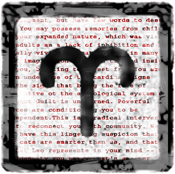
When you reach a communication impasse, that’s the time to take a new approach. It helps if one declares the impasse. That means admitting you’ve reached a place where you cannot pass through. It’s a kind of stalemate, which is an interesting word as well. The planets look like you’re at such a point, and the best strategy that I see is a change in the overall direction. This might seem like a reversal, but what is described is a reorientation that takes into account elements of the past and needs of the future that are factors in your current get-serious moment. The obstacle is not insurmountable. In fact no matter how heavy or loaded with gravitas the issue may seem, it will yield to communication if both parties can agree on a common goal and a couple of common values. Start there.
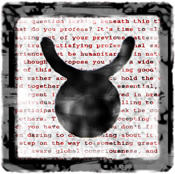
The theme of applied creativity continues this week. It’s one thing to ‘be creative’. It’s another to put the creative mind to work in a constructive way. One thing that will help is shifting your perception from seeking insight into the psychological level of a partnership to the emotional level. The concept applied means that once you have an understanding of how things are, you put that to work right away. That may take some persistence and focus, but it will pay off fairly soon. You may face the perception that you’re up against something much larger than yourself, which will fade once you start to consciously explore the situation for what it is. What seems like a limit or a boundary is really the key to exploration and adventure — and a way to balance your life.

The key to easing an emotionally challenging situation is by not being so emotional. I’m not suggesting you be cool or chilly, but rather that you take a full-spectrum approach to the question you’re facing. Let’s start with money. What role does that play? Then there is the question of how you handle the impulse by another person to be emotionally independent. Does that turn you on, does it make you insecure or do you have mixed feelings? And how do you feel about having a little more autonomy? One other matter to investigate is how your relationship to authority is influencing your feelings. You may be bringing past feelings about one of your parents into a relationship that wants equanimity and level ground. The power relationship is actually a lot more level than it seems.

You seem determined to break free of emotional patterns that have served their use. This in turn is leading to a revolution in how you experience yourself, and how you perceive yourself. Granted, it’s a subtle revolution, but there’s no doubt that your perception of yourself is thawing, and as the ice melts, what is emerging is a deeper level of emotional confidence. This may initially be the confidence to stand on your own, and to honor feelings and desires that you’re pretty sure aren’t espoused by most other people. Yet you feel what you feel, and you’re beginning to understand what matters to you. There is little point in trying to convert anyone to your cause. Be available and you will notice that the people who understand are available to you.

It’s all about ideas. Labor counts, the time you invest counts, but the ideas you have count for a lot more. I suggest you pause if you keep having the same ideas over and over, or if the new editions of the old concept don’t do what they’re supposed to do. There is an ease factor involved, and this is true no matter how large, old or insurmountable a problem seems. Extremely challenging situations sometimes have elegantly simple solutions. I suggest, in exploring the possibilities, that you be driven by your sense of fairness, and that you remember what you’ve learned in the past. It seems that you need to take into account some prior experience or lesson and make sure you extract every bit of value that you can.
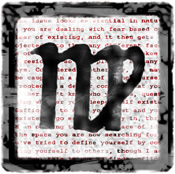
Venus retrograde is suggesting that you account for the ways in which you try to hide your feminine side. For a woman this could mean trying to conform to male values or rules, or to the desires of early caregivers who wanted a boy. For a man this could mean the ways in which so much as being aware of your feminine side can threaten people. If you find yourself asserting your authority, power or sex drive, check for the equal and opposite reaction. For example you may be trying to veil your passivity or desire to be dominated. More likely, you feel two distinct ways: a profound submissiveness and a potent sense of drive. That may be a contradiction you don’t want to talk about, but it’s as natural as the blue sky and the green sea.
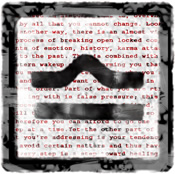
You seem unusually willing to admit something that you cannot usually get a grasp on. Yet for whatever reason, you’ve now got a handle on what it is. It’s almost like catching a dream in a net, or dropping a screen in front of a movie projector. What you have now that you may not have had lately is contrast. This is providing the opportunity to discern what is and is not pleasing to you, and to make some decisions based on what you’re noticing. Contrast is a useful tool, though it implies an exaggeration in perception — so be aware that things that seem off-putting are not as weird as you’re experiencing them, and things that seem appealing are not quite as potent as they appear — but overall your perception is accurate enough to make better decisions than you have in the past.

What are you obsessing over? It seems like you can’t get your mind off of a mistake you’ve made several times in the past, and that you fear you’re making again. You may be wondering when you’re finally going to learn how to stand up for yourself, or how to change your mind when you find yourself doing something self-destructive or exerting too much energy for very little return. The current episode may be exaggerating your sense of isolation. Yet there is a simple enough lesson available, which is that when you assert yourself, you help yourself get what you want. Asserting yourself is another way of saying that you’re committed to what you want, as evidenced by taking action. Yes, part of you still wants to hesitate, but you cannot do both.
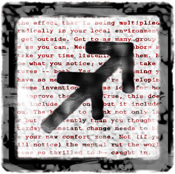
There are certain people who may not agree with you, though I suggest you go mellow on any authority trip and keep a flexible position. Someone you’re in contact with, or are about to be, has an idea, and they want to share it with you. I suggest you not take the role of the older and wiser one who knows more, but rather the wiser one who listens to people with ideas and those who are willing to express them to you. This person could become a good friend, and have a positive influence on your financial fortunes as well. Whether you agree with what you hear or not, I suggest you listen carefully, take it on board and consider what you hear. What’s interesting is that this person isn’t as influenced by certain biases as you are and is likely to be presenting an aware, intelligent point of view.
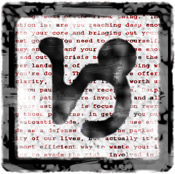
Take assistance as it’s offered, and as it comes to you. You’ve got a lot of responsibility and you’re handling it beautifully, but you will do better with the right assistance. This is likely to come in the form of information about how to handle a technical matter that you may not be familiar with. On anything involving an international situation, I suggest you get advice about the customs of the country you’re dealing with. What you learn in the next day or two can influence you to alter your longterm plans and expectations, and that would be a positive change. The whole point of knowledge is to take action. There are some parts of your plan that are going brilliantly and others that need revision. Remember not to delay things that are going well, and to take control of whatever you want to reevaluate.

You’re looking for the balance between what you want and what you must do; between what you inwardly desire and what you’re driven to achieve. This is an emotional state that’s pulling you in a few directions. It may take some time to work this out, and I suggest that you not take any perceived split in your feelings too seriously. You actually have some immediate situation or opportunity to work with, and it may be particularly exciting or a fresh twist on what you can do if you want. The thing is, you may be hesitating because of this emotional split. I suggest you consider the opportunity that seems appealing, and let your deeper stuff work itself out over the next couple of months. Life is an experiment; anything new that you try will give you valuable experience and information, if it feels right at the outset.
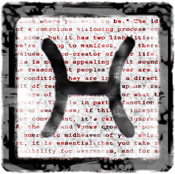
The most interesting aspects in your solar chart — Venus and Mars in Scorpio, and lots of activity in Libra — describe your rapidly evolving ideas around sex, commitment and religion. I suggest that there’s no limit to how thorough you can be evaluating these attributes of your life, because you want to be clear on all of them: such would facilitate your happiness. You need a working concept of relationship that embraces all three and that evaporates the concept of guilt having any value at all. Guilt is merely toxic. As such it is menacing. You have much better alternatives available now, and you have the option to recover parts of yourself that you’ve lost to these useless internal power struggles. Your existence is right. Your relationships are mutual. Desire is beautiful.



